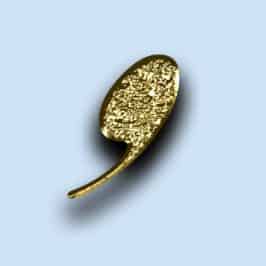
It can be tricky to work out whether to use ‘which’ or ‘that’ at times. Does it even matter? (Spoiler: Yes). After you’ve read this post, you’ll never wonder again.
First things first. Bookmark this page. You may need to refer to it again.
Right, let’s get to it. Don’t forget to test out your knowledge with the quiz at the end!
Why the confusion between ‘which’ and ‘that’?
‘Which’ and ‘that’ have some things in common. They are both relative pronouns. They both introduce more information about a noun. So why can’t we just use them interchangeably?
Well, in British English you can sometimes (more about that in a minute). In formal American English, you can’t.
When to use ‘which’ or ‘that’
Now comes the technical part, but stay with me. All will be explained!
It all depends on whether the clause is defining (otherwise known as ‘restrictive’) or non-defining (also called ‘non-restrictive’). Defining clauses use ‘that’ in American English, and can use either ‘that’ or ‘which’ in British English. Non-defining clauses use ‘which’, and only ‘which’, in either American English or British English.
Say what?
It’ll become clearer with some examples:
Defining/restrictive clause
The parrot that swore at me didn’t say sorry.
In this sentence, we need the information “that swore at me”, otherwise we don’t know which parrot (from the flock in front of us) didn’t say sorry. It is therefore a defining clause, meaning that these words define the thing we are talking about (the parrot). We can’t remove the clause “that swore at me” without altering the meaning of the sentence.
Because it is a defining clause, American English uses ‘that’. Brits have a bit more freedom because they can choose whether to use ‘that’ or ‘which’.
Non-defining/non-restrictive clause
The largest parrot, which swore at me, didn’t say sorry.
In this sentence, we don’t need the information “which swore at me” to understand which parrot didn’t say sorry. We know which parrot it was (the largest one). The words “which swore at me” form a non-defining clause, meaning these words don’t define the thing we are talking about (the largest parrot). We could remove the clause “which swore at me” and the meaning of the main sentence “The largest parrot didn’t say sorry” wouldn’t change.
My ‘by the way’ rule
If you can add the clause as a ‘by the way’, then use ‘which’:
The largest parrot swore at me. By the way, it didn’t say sorry.
In both American English and British English, only ‘which’ can be used here.
"The largest parrot, which swore at me, didn't say sorry." If you can add the clause as a 'by the way', use 'which' not 'that' – "The largest parrot didn't say sorry. By the way, it swore at me." Share on XIs it becoming clearer?
Let’s look at another example.
Another defining/restrictive clause example
The dessert that I thought tasted like cabbage took him all day to prepare.
This sentence suggests there are a number of desserts, and it was the particular one that I thought tasted of cabbage that took all day to prepare.
Here, “that” must be used in formal American English, (Brits can also use ‘which’) because without the clause “that I thought tasted like cabbage”, we don’t know which dessert is being referred to. This clause defines the cabbage.
What’s more, note that in this sentence, the word ‘that’ could be removed (not the whole clause, though, just the word ‘that’) and the sentence would still make sense:
The dessert I thought tasted like cabbage took him all day to prepare.
This is a bonus indicator of whether to use ‘that’ or ‘which’. If the single word could be removed without issue, then use ‘that’. Bear in mind, though, ‘that’ can’t always be removed in this way – see the parrot example above.
Another non-defining/non-restrictive clause example
The dessert, which I thought tasted like cabbage, took him all day to prepare.
In this sentence, there is only one dessert on offer and it took all day to prepare. It also happened to taste like cabbage. The clause “which I thought tasted like cabbage” is non-defining, as it doesn’t define the dessert (the fact that it took him all day to prepare defines the dessert). You could remove this information and still have a perfectly good sentence. So, ‘which’ must be used in both American English and British English.
Let’s do the ‘by the way’ test:
The dessert took him all day to prepare. By the way, I thought it tasted like cabbage.
It works! Use ‘which’.
What about people?
Easy peasy. If a person is being referred to, it’s best to use ‘who’, not ‘that’ (although some American style guides do allow the use of ‘that’) and certainly not ‘which’:
The pirate who swore at me didn’t say sorry. (Defining/restrictive clause)
The tallest pirate, who swore at me, didn’t say sorry. (Non-defining/non-restrictive clause)
If a person is being referred to, it's best to use 'who', not 'that' (although some American style guides do allow the use of 'that') and certainly not 'which' – "The pirate who swore at me didn't say sorry." "The pirate, who swore at… Share on X‘Which’ or ‘that’ – in summary
Which
- Non-defining, or restrictive, clause
- Dispensable
- Commas around the clause
- Can’t be substituted by ‘that’ in British English or American English
That
- Defining, or restrictive, clause
- Not dispensable
- No commas around the clause
- Can be substituted by ‘which’ in British English but not in American English
If you’re a writer, a professional editor/proofreader will pick up on any ‘which’/’what’ errors in your text. Don’t skip this stage of publication. A book riddled with typos and errors will attract bad reviews and greatly affect your sales.
Quiz – ‘which’ or ‘that’?
Test your knowledge with this five-question quiz!










Leave a Reply